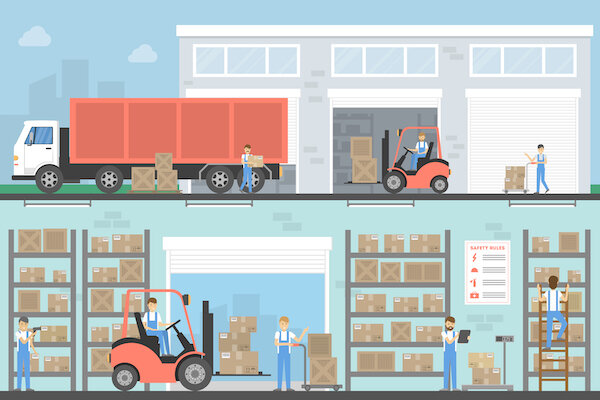Distinguishing Between Distributors and Dealers
Understanding the Differences Between Distributors and Dealers
While the terms “distributor” and “dealer” are often used interchangeably to describe one who purchases products from a manufacturer and sells the products to the public, there are distinct differences between the two roles, as each refers to a specific part of the common supply chain.
What Is a Distributor?
A distributor is the initial position on the supply chain. Typically, a distributor is either a representative or agent of the manufacturer and has entered into an exclusivity agreement with the manufacturer that covers a large territory. Distributors purchase products from a product manufacturer and either sell the product in smaller quantities to dealers or, in some cases, directly to the public. Distributors often receive some level of training from a manufacturer and are often responsible for after-sale services such as technical support, customer service, or replacement services. And while they typically have an exclusivity agreement in place for a larger territory, they likewise are typically limited by a non-compete agreement that prevents them from distributing competing products.
What Is a Dealer?
A dealer, on the other hand, is the position in the supply chain closest to the consuming public. Dealers generally purchase products from distributors in smaller quantities to stock their own shelves and sell to the public. Dealers are not restricted from offering competing products in the same location and often do so, to increase their appeal to the public. Another term used to describe a “dealer” is “retail distributor” recognizing the closer relationship between dealer and consumer. Dealers typically purchase products from distributors or other wholesalers and then sell those products to the public at a higher “retail” price in order to make a profit.
Key Differences Between Distributors and Dealers
As noted above, the more obvious differences between distributors and dealers arises out of their separate and distinct positions within the typical supply chain, where distributors are closer in relationship to manufacturers while dealers are closer in relationship to the consumer. There are other, notable, differences in the two roles as well, including:
Distributor agreements typically involve exclusivity, non-compete clauses, minimum sales requirements, royalty provisions (based on sales), and after-sale responsibilities, while dealer agreements discuss product quantities, warranties, price, and dates of delivery.
Distributors generally require a greater investment associated with the purchase of products in bulk and any after-sale responsibilities, but also provide a greater potential for lucrative financial results.
Dealers may provide competing products for sale in the same location, while distributors typically are bound to one brand and cannot offer or distribute competing brands.
Distributors generally have exclusive rights to a large metropolitan or even multi-state territory for their sales, and thus travel more often, while dealers typically have only a local presence.
Manufacturer control over distributors may involve financial incentives, sales strategy, advertising, promotion and sometimes training, while dealers are responsible for their own advertising, strategies and training.
Distributors typically have more product on hand than dealers, who purchase from distributors in smaller quantities.
For more insights on eCommerce, see our Corporate Law & Commercial Overview and Consumer Products Industry Legal Solutions pages.

